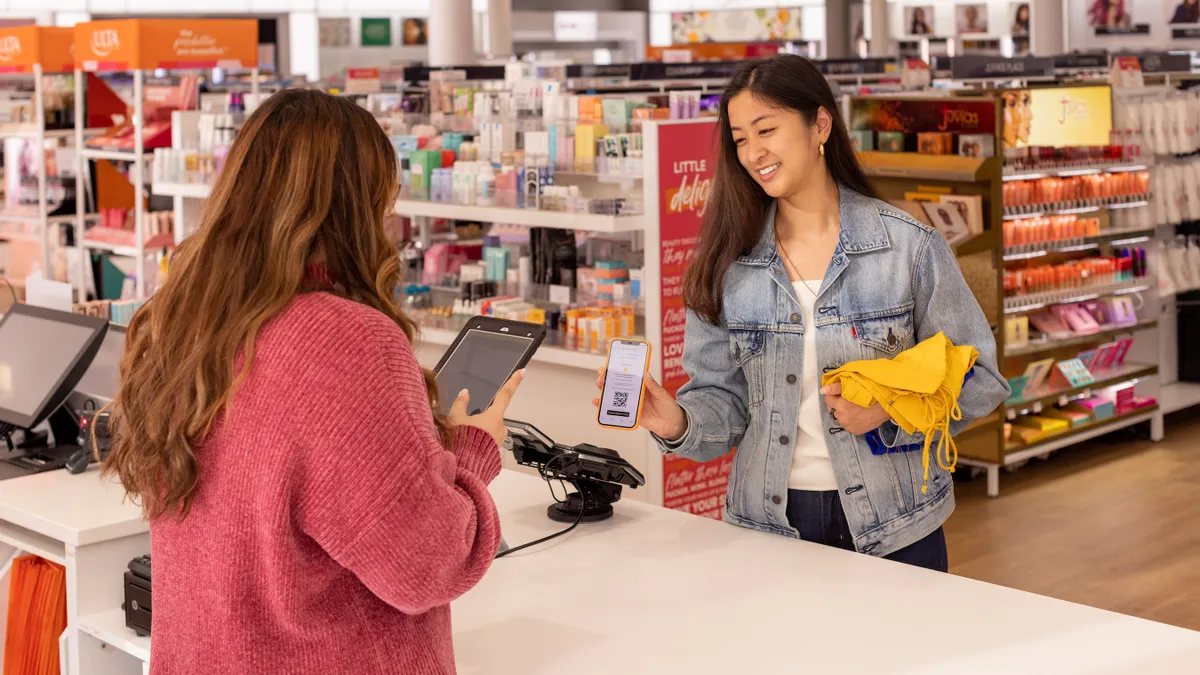Dive Brief:
- Ulta Beauty unveiled a retail media network that leverages data from a rewards program the company claims is the largest in the beauty category, per a press release.
- The new UB Media platform draws on 37 million consumer profiles linked to the brand’s Ultamate Rewards. Advertisers using UB Media can tap into that data to inform campaigns spanning display, video, social media and influencer marketing, along with on-site sponsored product placements on Ulta-owned properties.
- Ulta is also providing “closed-loop” campaign reporting services that share insights into how advertising efforts are resonating. Retail media networks continue to gain traction, including with specialty retailers that can offer brands a more tailored audience and potentially greater marketing precision.
Dive Insight:
Ulta is stepping up its efforts in the race for retail media dollars with the establishment of UB Media. As these networks proliferate, retailers need to devise distinctive pitches to win over brands that face no shortage of options. Ulta is leaning into its scale as the largest beauty retailer in the U.S., with a focus on a rewards program carrying tens of millions of consumer profiles that could help marketers better target their campaigns.
“No one knows the beauty industry and its audience like Ulta Beauty,” said Brent Rosso, vice president of UB Media, in a press statement. “Our new offering reinforces our ability to engage guests where, when, and how they want to connect, with hyper-focused advertising efforts in a dynamic ecosystem and further elevates our position as brand partner of choice.”
Rosso has been at Ulta helping oversee UB Media since October, according to LinkedIn. Prior to the formal UB Media announcement, Ulta had a marketing program called the Digital Marketing Partner Program. UB Media seeks to expand and enrich the company’s advertising suite to recognize the current omnichannel environment.
Ulta started running on-site display inventory on its owned properties earlier this year, for example, and plans to introduce additional formats in the future. Display and sponsored product listings are the most popular ad types in retail media, but Ulta is trotting out some offerings that could be of particular interest to those in beauty, such as ones related to influencer marketing.
Retail media in the beauty category could get more competitive soon. Sephora, a rival, was hiring for a senior director to help spearhead its retail media network initiatives earlier this year, per a job listings page.
“Sephora is embarking on the development and launch of its own retail media network: creating new value exchanges for our brand partners and accelerating ad monetization growth on our owned platforms,” the posting read.
Ulta’s more concentrated push into the space is also interesting given its relationship with Target. The beauty brand operates hundreds of shop-in-shops at the big-box chain, a tie-up that has been a boon during a highly volatile period for the retail business. But Target has its own retail media network called Roundel that theoretically could vie for the same brands Ulta is chasing.
The digital ad market has had an impressive run of growth that’s been bolstered, in part, by the retail media explosion. Brands are flocking to the concept as they contend with the deprecation of third-party cookies — a key method of ad-targeting — and try to align their marketing messages closer to the point of sale using first-party shopper data. Other categories are now chasing the same successes retailers have seen. Marriott earlier this week launched the hospitality industry’s first media network.
















